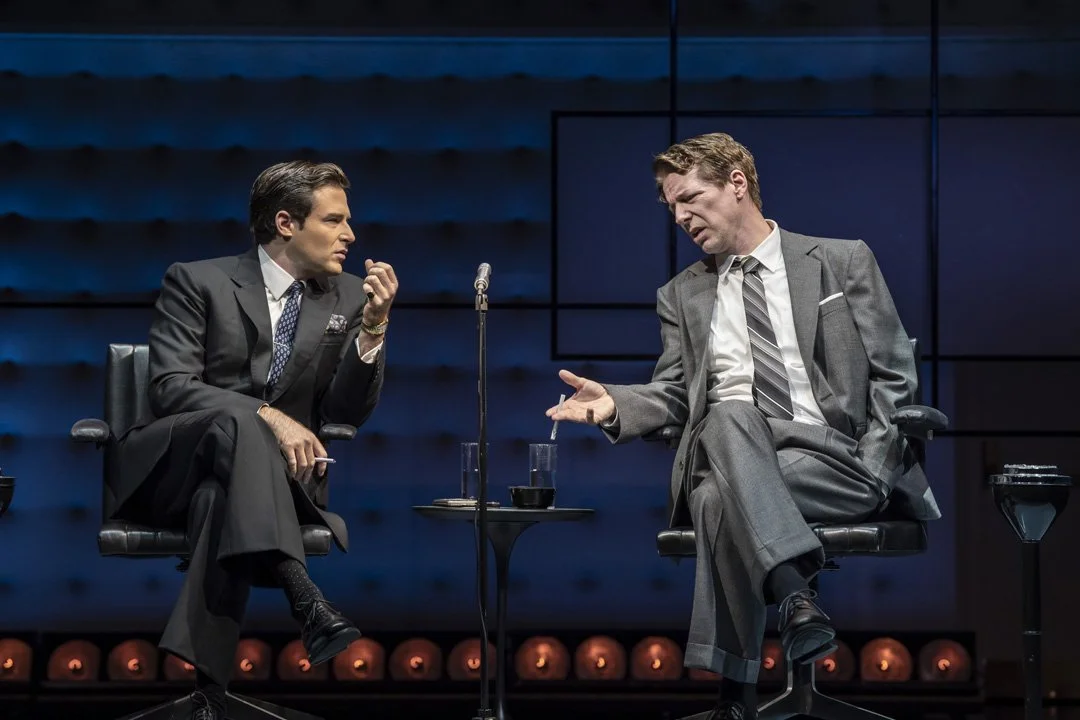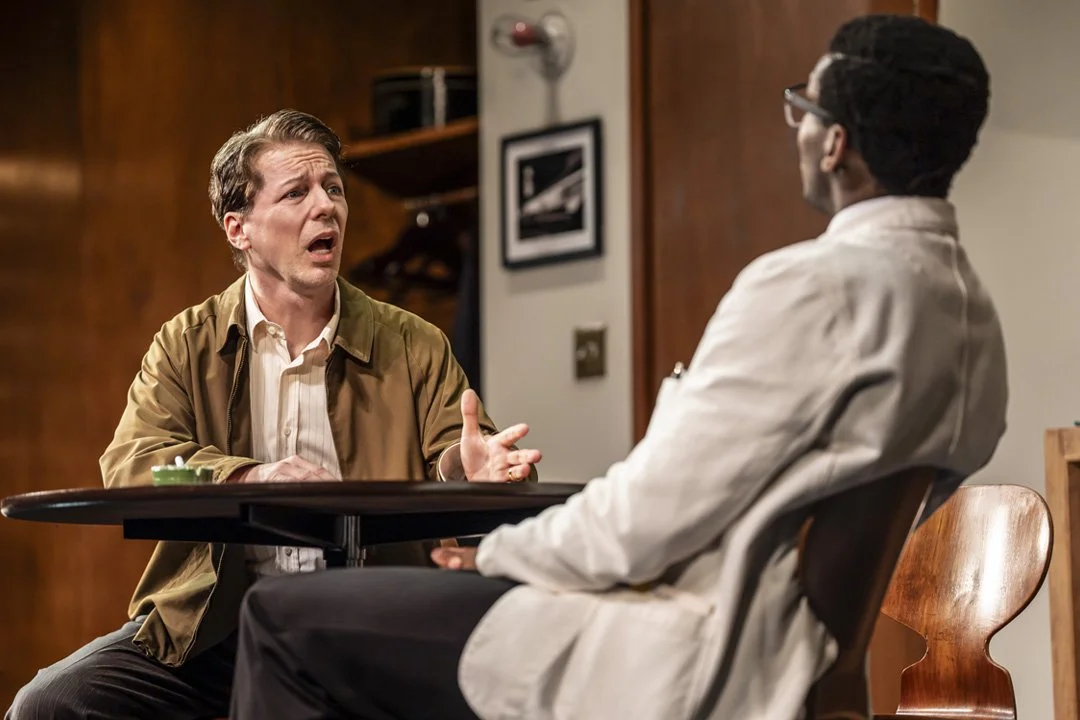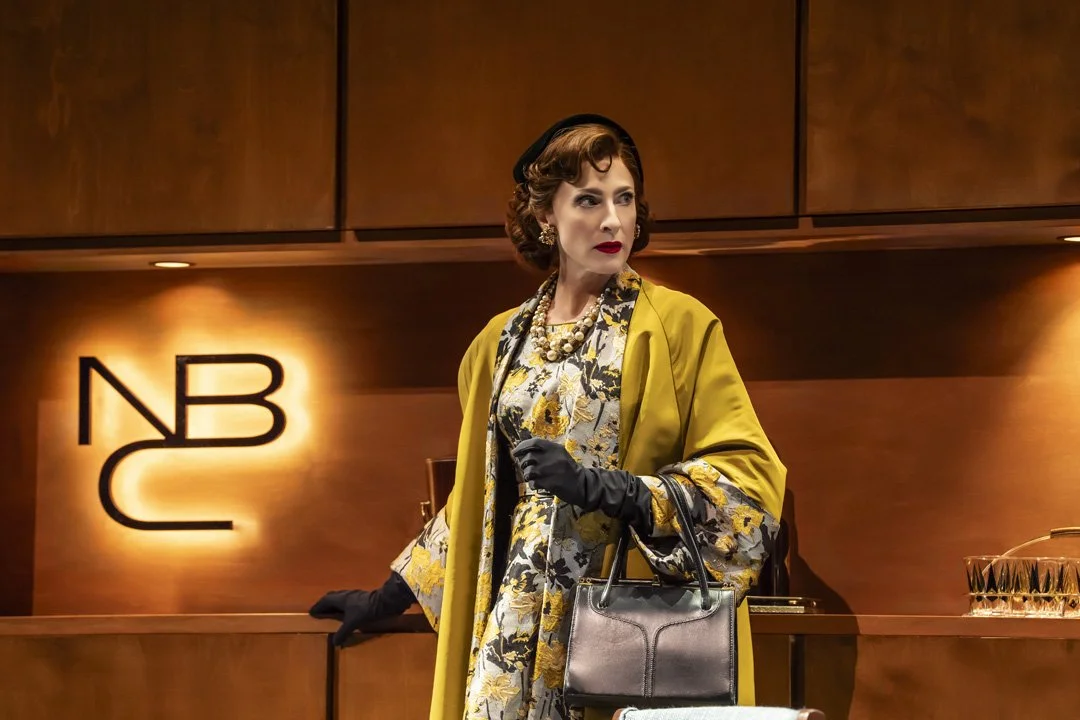Good Night, Oscar
Barbican Theatre • 31st July - 21st September
It was with great enthusiasm that I headed to the Barbican Theatre to watch Doug Wright’s play Good Night, Oscar. First performed in Chicago in 2022, it’s taken a while for this production to finally find its way to the London stage with an amalgam of its original American cast playing alongside a number of new English company members. En-route the play has garnered plenty of critical acclaim, as well as securing a Tony Award for Sean Hayes (he of Will & Grace fame) for his portrayal of the titular character, American pianist and composer Oscar Levant. This much information I had managed to glean whilst sticking to my rule of not reading any reviews about a production prior to seeing it… although I should confess to stumbling across an interview with its star, Sean Hayes, when the promotional junket took him to the ITV studios of Lorraine for an early morning chat with Christine Lampard.
Despite Oscar Levant being something of a star in America during the late fifties, known as much for the acerbic wit he would display during his many talk show appearances as he was for being the premier interpreter of George Gershwins music, which found him being America’s highest paid classical pianist, his star has faded significantly over time, leaving Hayes as this productions main attraction, not only for the English audiences far removed from the position Levant once held in American culture, but quite possibly for the original American audiences in 2022 as well. That being said, Wright’s play remains a fascinating look at fame and the uncontrollable demons it can unleash on those that find themselves caught up in its wake.
As for the Gershwin compositions that Levant would become famous for playing, my first exposure to the composer, as it probably was for countless others of my generation, actually came during the opening scene of Woody Allen’s cinematic classic Manhattan, Rhapsody In Blue famously accompanying cinematographer Gordon Willis’s iconic opening black and white images of the Manhattan skyline during Allen’s visual love letter to the city. The score was nominated for Best Soundtrack during the 33rd British Academy Film Awards, and the album was soon to become the first piece of music I would own that hadn’t been first heard in the UK Top 40. Had I known that the person credited with bringing that same piece of music into much of the American public’s consciousness some thirty-four years earlier had been so tortured by the success it would subsequently bring him, my relationship to this still mesmeric piece of music might well have been very different.
Putting Oscar Levant’s musical prowess to one side momentarilly, he was also famously public about his demons and his ongoing battle with mental health, it often being referenced during his many television appearances, and it is one such appearance that Doug Wright centres his script on, the play’s almost real-time narrative focussing on a particularly traumatic 1958 appearance with Jack Paar, who’s pioneering late night Tonight Show would often feature Levant as a guest. Despite its historic setting, this production couldn’t feel more timely given Paar is the man often credited with inventing the late-night talk format, and in the same week as the play opened at the Barbican, audiences in Trump’s America feared the now commonplace phenomena could well be coming to end with the controversial cancellation of The Late Show with Stephen Colbert, President Donald Trump also firing social media warning shots across both Jimmy Kimmel and Jimmy Fallon’s bows… but I digress.
As the play begins, and Jack Paar (Ben Rappaport) is about to go live, his guest, Oscar Levant, is nowhere to be seen. Network boss Bob Sarnoff (Richard Katz) is understandably nervous, Levant’s reputation for being a notoriously ‘tricky’ guest having already proceeded him. Paar knows that his appearance will bring attention to the fledgling format, Sarnoff however questions if it’s the sort of attention the network can afford to be associated with. Paar’s high-stakes gamble is raised even higher when Oscar’s wife, June (Rosalie Craig) arrives to announce that her husband will be arriving from Mount Sinai Hospital where she has recently had him committed, but from where she has managed to secure a four hour release in order for him to make an appearance on the show, granting him the audience he so craves but for a reason that continues to haunt him, being repeatedly wheeled out to play the Gershwin pieces he has become so closely linked to whilst his own composing career gets increasingly overlooked.
Things don’t get any easier when Levant arrives, clearly mentally distressed and seemingly only just able to hold on to reality between the hearing of voices in his head and manifesting the deceased George Gershwin (David Burnett) from beyond the grave with the sole purpose of further tormenting himself. Despite watching a clearly once great man now floundering in the depths of a life that has become fuelled by little more than drugs and rage, Sean Hayes’s performance still comes fully charged with Levants trademark acerbic wit. Whilst it would be too easy to compare the never ending stream of witty one-liners so abundantly on display here to his previous portrayal as the equally quick witted Jack McFarland in American sitcom Will And Grace, as Levant, Hayes can go much darker, the passage of time and a well written script allowing him to replace the camp skittishness of McFarland with Levant’s increasingly destructive neurosis and his unravelling grasp on reality. (The passing of time also seems to allow Hayes to access a lower vocal register, at times his Levant displaying similar vocal mannerisims to another faded American icon, Mr Magoo). This uneasy cocktail is made all the more intense by the clock counting down to the imminent live broadcast, beautifully building to the plays most memorising moment, when Hayes gets to perform Rhapsody In Blue in person during what can only be described as a virtuoso performance by the actor… (and yes, it is live folks!). This rightfully secures the actor a standing ovation.
Most notable amongst this productions new cast members is Rosalie Craig for her outstanding performance as Oscar’s long suffering but dedicated wife June. That being said, the whole company are to be commended on their performances, as is Rachel Hauck’s phenomenal set design, the one act, 100 minute play being staged in three locations, Jack Paar’s office, Oscar Levant’s dressing room and the TV studio where we get to watch the eventual live recording of the show, all lovingly recreated with impeccable detail, the latter infused with an ominous visual nod to Oscar Levants declining state of mind. Doug Wright has written a play that is as funny as it is tragic, Sean Hayes triumphant performance being the jewel in the crown of Lisa Peterson’s stylishly directed production.
Good night, Oscar Levant… wherever you are.
Now it’s time for me to find my Gershwin CD.
★★★★★














Good Night, Oscar is on at the Barbican Theatre until 21 September. Tickets available here
review: Simon J. Webb
photographs: Johan Perrson
